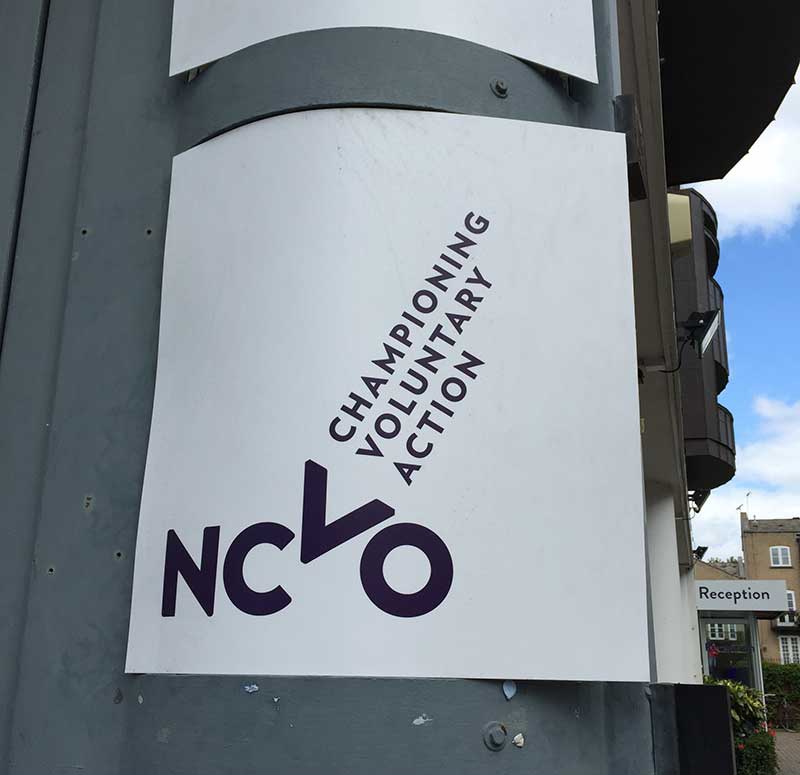Review of fundraising self-regulation opens for evidence
The review of fundraising self-regulation, chaired by NCVO’s chief executive Sir Stuart Etherington, is now inviting evidence and input to “identify what changes are required to rebuild public trust in fundraising by charities”.
The review was established following criticism in The Daily Mail of fundraising methods at a telephone fundraising agency and four of its national charity clients. This followed The Mail on Sunday’s attempts in May to link the death of lifelong poppy seller Mrs Olive Cooke to the quantity of fundraising appeals she received from the charities she supported.
It was established at the request of Rob Wilson MP, the Minister for Civil Society.
The review will look at approaches to regulation in other areas and industries, with the aim of “identifying changes that will substantially strengthen the current system”.
What is the review for?
The terms of the review state that its objective is:
“To review the effectiveness of the current self-regulatory system for fundraising in the light of recent high-profile cases. To make recommendations and proposals to ministers, the charity sector and other bodies involved in fundraising on the changes needed to ensure an effective system of self-regulation which protects the interests and the confidence of the public while serving beneficiaries”.
What will the review look at?
Although the review was triggered by criticisms of and allegations about some charities’ use of direct mail and telephone fundraising, the review will take a broader view of fundraising, focusing on four techniques or channels:
• direct mail
• telephone
• doorstep
• textile collections
It will consider:
• The structure of self-regulation, and the relationship between standard-setting (including the Code of Fundraising Practice), enforcement and operational management.
• The operation of the self-regulatory system and the current self-regulatory bodies (Fundraising Standards Board, Public Fundraising Regulatory Association, Institute of Fundraising).
• The scope of regulation itself (who is regulated; who is not) and sanctions.
• The responsibilities of charity chief executives and trustees.
• The role of third-party fundraisers and their relationship with charities.
• The relationship between the fundraising sector and the public.
Advertisement
Who is on the review panel?
The review panel consists of:
• Sir Stuart Etherington (chair)
• Lord Leigh of Hurley
• Baroness Pitkeathley
• Lord Wallace of Saltaire
Whom do they wish to hear from?
The panel is inviting applications from a range of stakeholders, including:
• Representatives of the public interest
• Consumer experts
• Parliamentarians
• The three fundraising self-regulatory bodies
• Chief executives/chairs of large fundraising charities; umbrella representatives of small charities
• Representatives of commercial fundraisers
• Representatives from the media
• Other self-regulatory bodies
• Academics specialising in regulation
What are they asking?
The review panel has set out the following questions on which it requests responses.
1. What do you consider to be the strengths and weaknesses of the current self-regulatory set up? Do you believe self-regulation continues to be an appropriate approach to regulating fundraising?
2. What do you consider to be the strengths and weaknesses of the bodies currently involved in self-regulation?
3. What changes, if any, do you believe should be made to the current self-regulatory structure?
4. What do you consider the most effective ways to ensure coverage of and compliance with a self-regulatory regime?
5. How could it best be ensured that a future self-regulatory system is adequately resourced?
6. Which charities should be covered by self-regulation? Should there be a threshold for fundraised income before membership of a self-regulatory body is expected? If so, where would you set this threshold?
7. Should additional measures be put in place to monitor or regulate operational fundraising agencies, such as call centres? If so, what should these be?
8. Do you have views on how to ensure charities adhere to high standards in public fundraising, other than through formal regulatory structures?
In addition, the panel has requested contributors to “feel free to provide views or evidence on any other related matters that you believe would help inform our review”.
By when?
Sir Stuart Etherington has admitted that the timescale for the review “is very tight”. The issues involved in regulating a multi-billion pound industry sector will be consulted on in just under a fortnight. Contributions are sought by Friday 14 August 2015.
The panel has then been tasked in considering all these and coming up with recommendations in five weeks: it is expected to report on 21 September 2015.
And in Scotland?
The review does not cover Scotland. No similar media investigations or allegations of bad practice in fundraising seem to have been made there.
Nevertheless, the Scottish government has asked SCVO to ask charities and members of the public for their views on how well the fundraising profession is regulated. This review, described as ‘informal’, also has a very short timescale: SCVO is asked to report by the end of August.




